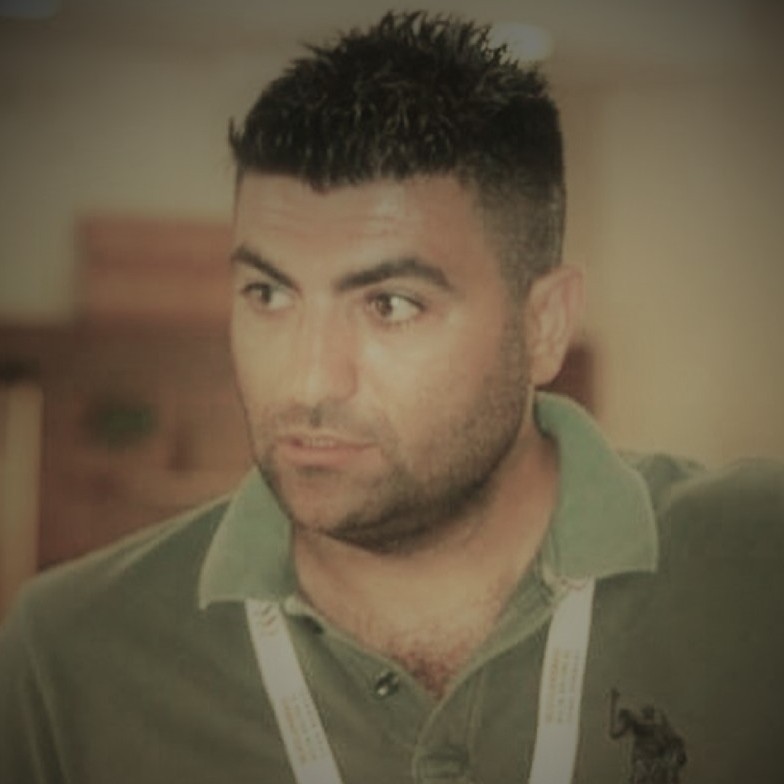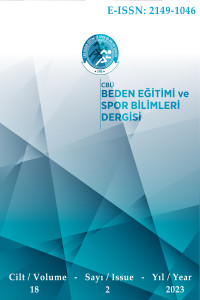Review
Research Article
Aim & Scope
It is a peer-reviewed journal in which research articles, reviews, case reports, original articles and special sections (Editorial, letter to the editor, etc.) on the theoretical and applied fields of Sports Sciences (Physical Education and Sports Teaching, Sports Management, Psycho-Social Areas in Sports, Movement and Training Sciences, Athlete Health and Recreation) are published.
CBU Journal of Physical Education and Sports Sciences accepts articles prepared on current issues in the field of Sports Sciences.
It is a peer-reviewed journal in which research articles, reviews, case reports, original articles and special sections (Editorial, letter to the editor, etc.) on the theoretical and applied fields of Sports Sciences (Physical Education and Sports Teaching, Sports Management, Psycho-Social Areas in Sports, Movement and Training Sciences, Athlete Health and Recreation) are published.
Author Guidelines
TYPES OF TEXT
A. Research Articles:
These are researches that have not been published in a journal or similar environment before, and that the original data collected are evaluated and prepared in accordance with the journal writing order. The main text (excluding the title page, references, table/figure/picture) should not exceed 18 pages. If the data set in the research has been used in another research before, this information should be included in the resources section.
Structure:
- Abstract (Average 200-250 words; Turkish and English, consisting of purpose, materials and methods, findings and conclusions)
- Introduction
- Materials and Methods (Subtitles in the sample template should be added here!)
- Findings
- Discussion
- Conclusion (Optionally, it can be Discussion and Conclusion!)
- Acknowledgments (optional)
- References
B. Review Articles:
These are articles that contain up-to-date information and resources in the field of physical education and sports sciences, both domestic and foreign sources are scanned, and the author/authors process the information at the highest level (analysis and synthesis). Prepared directly or by invited authors. It is especially preferred if the author has published publications on that subject. Includes title page, abstracts (Turkish and English), main text, table/figure/picture and references. The main text can be divided into subheadings related to the subject.
Structure:
- Abstract (Average 200-250 words, without sections, in Turkish and English)
- Topics related to the subject
- References
TEXT STRUCTURE
The language of the journal is Turkish and English. Turkish manuscripts must comply with the spelling rules of the Turkish Language Institution. English equivalents of special terms in Turkish should be given in parentheses. When using English, the rules of English spelling should be adhered to. If frequently used terms or scale names are included in your article, the first letters of the term used in the first notation should be written in capital letters, write the abbreviation in parentheses at the end of the term and use only the abbreviation in other notations. For example: When the term is first used, it should be given with its abbreviation in parentheses at the end, as in the examples of Faculty of Sport Sciences (FSS), Telephone Addiction Scale (TAS). In all subsequent uses, only capitalized abbreviations should be used. (Please note that the suffixes after the abbreviations are added according to the pronunciation of the last letter of the abbreviation!).
Title and Author Name: The title should not exceed 10-12 words, should be written in 14 points, centered, with the first letters capitalized, excluding the connectors. In articles written in Turkish, the English title should be placed under the Turkish title, and in the articles written in English, the Turkish title should be placed under the English title. The name of the author of the study should be written in 11 font size, surname in capital letters and centered. If there is more than one author, the names should be written side by side according to their contributions to the study. Along with the title of the author(s), the institution and e-mail address should be added. If the research is derived from a proceeding, thesis or a project, it should be indicated in the footnote with a special sign (*) in accordance with the explanation in the sample template.
Abstract and Keywords: The Turkish abstract should be written under the title of "Abstract" and the English summary should be written under the title of "Abstract". The abstract should be written in 9 font size, 200-250 words, Times New Roman character, single line spacing and single column. Both Turkish and English abstracts should include information about the purpose, study group/sample, data collection tools, data analysis, findings and conclusion. “Anahtar Kelimeler” should be given just below the Turkish abstract, and “Keywords” right below the English abstract. It is sufficient to have 3 to 5 keywords. When choosing keywords, it is important to choose words that are not in the title.
A. Main Text:
Manuscripts should be written in standard A4 size MS Word program, 12 points, Times New Roman character, with 2.5 cm spacing from all sides of the page and with 1.15 line spacing. All pages should be numbered starting from the title page. In a research article, there should be Introduction, Method, Results, Discussion-Conclusion and Suggestions sections, respectively. This content may be ignored in review articles. Tables, graphics, figures and pictures to be included in the main text should be shown and numbered at appropriate places in the text. Graphics, figures and pictures should be named and numbered and texts with necessary explanations should be added under them. Table number and title should be written on the tables. Tables and graphics should be prepared according to APA 7 style.
B. Acknowledgments:
Including this section in the article depends on the preference of the author(s). Here, they can write a few sentences of thanks to people whose contribution to the research is not at the level of authorship. Contributions of those who are thanked should be clearly stated here.
C. References:
The last page of the article should consist of the REFERENCES heading. References should be written in 9 font size and single line spacing. A blank line should be left between references. Important, new and/or directly relevant resources should be included In the article. But it is recommended that the number of resources should not exceed 60. Oral interviews and notifications of unpublished works (except for Master and PhD theses) should not be used as a source. Footnotes should not be used. All references should be written in alphabetical order.
Ethical Principles and Publication Policy
Ethical Principles and Publication Policy
Manisa Celal Bayar University Journal of Physical Education and Sports Sciences is a scientific and peer-reviewed journal that publishes original research in this field, aiming to contribute to the field of sports sciences in Turkey and in the world. The journal is published twice a year, in June and December. In accordance with the publication policy of the journal, quantitative and qualitative research, review and compilation articles related to all fields of sports sciences are included. The publication languages of the journal are Turkish and English.
The articles submitted to the journal must not have been published elsewhere or sent to another journal simultaneously for publication. Manisa Celal Bayar University Journal of Physical Education and Sports Sciences has all the publishing rights of the articles accepted for publication. The articles to be sent to the journal must be uploaded to the journal system via the https://dergipark.org.tr/tr/pub/cbubesbd address within the body of Dergipark. Articles sent to the editors, members of the Editorial Board or the journal contact e-mail address are not considered as official applications and will not be evaluated. In multi-author articles, none of the authors can be deleted from the list of authors without the written consent of all authors after the article is sent to the journal for publication. In addition, after the process has started, no name can be added as an author and the order of the author cannot be changed.
All articles submitted to the journal are taken into preliminary evaluation by the Editorial Board. In the preliminary evaluation, the articles:
a) Publication ethics,
b) Journal publication principles,
c) Scientific originality and timeliness,
d) Contribution to the literature of sports sciences,
e) The journal is inspected in terms of writing rules and criteria for compliance with the article template.
The articles that pass the preliminary evaluation are submitted to the evaluation of at least two referees who are experts in their field. In the evaluation process of the articles, a double-blind refereeing system is applied. Communication between the author(s) and the referees is provided only through the editors. In line with the reports from the referees, it may be decided to publish the article, to correct it within the framework of the referee reports, or to reject the article. Authors are informed as soon as possible about the refereeing process of their articles. In case the author objects to the referee reports or the reports from the referees contradict each other, the article is directed to a new referee (third referee). In line with the final referee reports, the final decision is made on whether the article will be published or not. The articles for which correction is requested should be submitted to the Editorial Board as soon as possible after making the necessary corrections by the authors. If the author does not respond to the referee evaluation reports within a suitable time frame, the relevant article can be left to the next issue. If the author(s) do not make the corrections requested by the referees within a publication period without justification, the decision regarding the article belongs to the editorial board of the journal.
In order for the articles accepted for publication to be published, the "Copyright Transfer Form" on the website of the journal must be signed by all the authors whose names are included in the article, as well as the "Ethical Consent Document" related to the article must be sent to us via the journal system. In accordance with the ULAKBİM TR index rules, the ORCID numbers of all authors in the articles must be added to the final form of the article. Articles belonging to authors with missing ORCID numbers are not given a DOI number and are not published as early view.
Below are the basic principles and rules that include the ethical responsibilities, roles and duties of authors, journal editors, referees and publishers in terms of journal publication policy. These principles and rules have been determined on the basis of the guidelines of the 'Committee on Publication Ethics - COPE (https://publicationethics.org).
Ethical responsibilities of the authors
The articles sent to Manisa Celal Bayar University Journal of Physical Education and Sports Sciences must be original studies in the field of sports sciences.
All sources (authors, online pages, personal interviews, etc.) used in the articles should be shown correctly and in accordance with the journal writing rules.
The Publication Rights Transfer Form (https://dergipark.org.tr/tr/download/journal-file/9214) for the articles submitted to the journal should be scanned after being signed by all authors and sent to us during the first submission via the journal system.
Persons who do not contribute intellectually to the article should not be mentioned as authors.
Persons who have a conflict/alliance of interest regarding the article applied for publication should be reported to the editors.
Authors may be required to submit raw data on their work to the editorial board while in the peer review process. In this case, the authors are expected to share their raw data with the editorial board. Authors are obliged to keep the data of a published article for 5 years.
The author(s) must have a document showing that they have the right to use the data used, the necessary permissions for the research/analysis, or the consent of the experimental subjects. In order for the candidate articles sent to the journal to be evaluated by our editorial board, the "Ethical Consent Document" regarding the research must be available and submitted to us via the journal system.
The author(s) should contact the editor in a timely manner to inform, correct or withdraw any errors regarding their manuscripts in the evaluation and early view stage or published in electronic media. Author(s) are required to submit their requests for correction or withdrawal of their articles via the journal system or our journal e-mail address, during the early view period or the journal park system allows the editors to make changes. All responsibility that may occur in case of exceeding these processes belongs to the author(s).
The final approved version to be published, including the ORCID ID numbers, of the manuscript whose evaluation process has been completed, is requested from the authors. The incoming document is reviewed and the article is sent back to the author(s) with the page number given for the final control before publication in order to prevent an error that may occur in typesetting. After the final approval of the author(s), the article is open for early view.
The author(s) should present in the article evidence that they care about ethical principles in the data collection process (such as obtaining their permission to use other people's documents such as scales, questionnaires, photographs). It should be stated in the articles that research and publication ethics and copyright regulations for intellectual and artistic works are complied with.
Ethical responsibilities of journal editors
Editors should meet the information needs of referees, authors, researchers, practitioners and readers, provide feedback when necessary, and act in accordance with the principles of transparency in matters that require correction and explanation during the publication process.
The editor should make an effort to match the published articles with the knowledge and skills of the journal readers.
Editors, while deciding whether to publish the articles, should pay attention to the originality of the articles and to contribute to the scientific literature, readers, researchers and practitioners.
Editors should consider the original value of the articles, their contribution to the field, the validity and reliability of the research method, the clarity of the narrative, and the purpose and scope of the journal when making a positive or negative decision about the articles.
Editors should take the submitted articles to the preliminary evaluation stage as long as they do not have significant problems, consider positive referee suggestions, and should not change the decisions made by the previous editor(s) unless there are serious problems.
The editor should ensure that the peer-review process is carried out with double-blind peer-review and should not disclose the referees to the authors and the authors to the referees.
Editors should send the articles taking into account the expertise of the referees, reach the experts in the field according to the incoming article and request refereeing, and support the evaluations to be made in an impartial and independent manner. Editors should constantly seek to ensure that the journal's referee pool consists of a wide range and is kept up-to-date.
Editors should consider whether there is a conflict of interest between the editors, the referees and the author(s) for the unbiased evaluation of the article.
Editors should block reviews that do not follow academic etiquette and are unscientific.
Editors should ensure that the journal publication processes are operated in accordance with publication policies and guidelines, should inform those involved in the process about the developments in publication policies, and should prepare a training program when necessary.
Editors should be in effective communication with everyone involved in the publication process and should organize meetings at regular intervals.
Editors should ensure the protection of personal data in the reviewed articles; must protect the individual data of the author, referee and readers.
Editors; should pay attention to the protection of human and animal rights in articles. It should care about documenting the explicit consent of the participants of the article, and should check whether the ethics committee approval and the necessary permissions for experimental research are obtained.
Editors; should take action against abuse of power. When there are complaints about misconduct, he should make an objective investigation and share the relevant findings.
Editors should follow up on errors, inconsistencies or misdirections in articles and corrections from referees.
Editors must protect the intellectual property rights of the published articles and defend the rights of the journal and the author(s) in case of violation. In addition, it should take the necessary measures to ensure that the content of the published articles does not violate the intellectual property rights of other publications; originality-similarity check.
Editors should take into account the consistent criticisms of the articles published in the Journal, and should give the right to reply to the author(s) of the criticized articles.
Editors should also consider studies with negative results.
Editors should review the requests and complaints submitted to the Journal and make the necessary explanations.
Ethical responsibilities of referees
Reviewers should only accept to evaluate articles related to their field of expertise.
The referees should evaluate the articles impartially and objectively.
Confidentiality rules must be followed in evaluations. Data that would reveal the identities of the referees should not be included in the evaluation reports; The author(s) of the article should not be contacted through any other communication channel other than the referee's report. In accordance with this principle, they should not share the articles they have reviewed with third parties or on any communication platform before publication, should not use any data in the article before publication, and should be destroyed after the evaluation process. If necessary, only after the publication of the article is completed, the relevant article should be used.
Referees must carefully and in detail fill out the referee evaluation form for the article. In addition, they should note clearly and understandably the changes they want on the document sent to them.
If the referee(s) will decide to reject the article they have reviewed, they should send the report of the editorial board and the article author(s) which objectively and scientifically reveals why the article was rejected. In cases that can be corrected by correction, direct rejection should not be given, a detailed correction report should be prepared and the author(s) should shed light on the publication process.
Nationality, gender, religious belief, political belief and commercial concerns should not impair the impartiality of the assessment.
When the reviewers understand that there is a conflict of interest, they should refuse to evaluate the article and inform the editors.
Referees should make their assessments in a constructive language in accordance with academic etiquette; Subjective comments containing insults, contempt and hostility should be avoided.
The referees should evaluate the article for which they accepted the evaluation within the time limit.
Publication Principles about Vulnerable and Risky Groups
Research conducted with vulnerable and risky groups must be conducted in accordance with articles 16, 17, 18, 19 and 20 of the WMA Declaration of Helsinki covering these groups and must be approved by an authorized official institution with an ethics committee decision. In this direction:Declaration of Helsinki Article 16. Medical research involving human subjects must be conducted only by individuals with the appropriate scientific training and qualifications. Research on patients or healthy volunteers requires the supervision of a competent and appropriately qualified physician or other health care professional. The responsibility for the protection of research subjects must always rest with the physician or other health care professional and never the research subjects, even though they have given consent.
Declaration of Helsinki Article 17. Medical research involving a disadvantaged or vulnerable population or community is only justified if the research is responsive to the health needs and priorities of this population or community and if there is a reasonable likelihood that this population or community stands to benefit from the results of the research.
Declaration of Helsinki Article 18. Every medical research study involving human subjects must be preceded by careful assessment of predictable risks and burdens to the individuals and communities involved in the research in comparison with foreseeable benefits to them and to other individuals or communities affected by the condition under investigation.
In cases where the risks appear to outweigh the potential benefits or when sufficient evidence of definitive results is obtained, physicians should consider whether to continue the study, modify the study, or stop it immediately.
Declaration of Helsinki Article 19. Some groups and individuals are particularly vulnerable and may be more likely to be exploited or suffer additional harm by researchers. Special protection should be provided to all groups and individuals in a vulnerable situation.
Article 20 of the Declaration of Helsinki. Medical research with a vulnerable group can only be justified if the research would correspond to the health needs or priorities of this group and it is not possible to carry out the research with another group that is not in this position. In addition, the group in question should be able to benefit from the information, practices, or interventions derived from the research.
The publishing principles of our journal regarding research conducted with vulnerable and risky groups are as follows:
-Our main priority is to respond to the needs and priorities of the group/individuals in which the study is carried out.
- It is ensured that the work cannot be carried out outside these groups and individuals.
- Additional measures taken to protect volunteers taking part in these studies must be documented.
- In such studies, our editorial board may make additional evaluations within the framework of basic ethical principles. In cases where it is deemed necessary during the evaluation process, our editorial board may request information and documents in addition to ethics committee permission.
Article Withdrawal Policy
CBÜ Journal of Physical Education and Sports Sciences is sensitive about ensuring the integrity of the authors' study content. The primary responsibility for whether and when a scientific study will be published belongs to the editor. In making this decision, the Editor is guided by the policies of the journal's editorial board and is limited by applicable legal requirements regarding plagiarism. Published articles will remain as current, accurate and unaltered as possible. However, sometimes unavoidable circumstances may arise after publication that require the article to be withdrawed or removed from a particular journal. This is used only for "Study in Press", which represents the first editions of accepted studies.If any study, during the publishing phase, constitutes a violation of professional ethical codes, such as multiple statements, false documents, plagiarism or fraudulent use of data, or similar situations, the study may be withdrawn at the editor's discretion.
Violations of professional codes of ethics, such as multiple submissions, false claims of authorship, plagiarism, fraudulent use of data, and similar allegations, will result in the retraction of a study. Sometimes, authors may also issue a withdrawal to correct errors that occurred during submission or publication. In these cases, the author/s may withdraw their studies.
Archiving Policy
CBÜ Journal of Physical Education and Sports Sciences uses the LOCKSS system to allow participating libraries to create permanent archives for preservation and restoration purposes to create a distributed archiving system. For detailed information about the LOCKSS system, CLICK Here.LOCKSS Program is a system that uses open source end-to-end digital protection software, built on the principle of "securing a large number of copies".
When faced with an unethical situation
If you encounter any unethical behavior or content other than the above-mentioned ethical responsibilities in the Journal of Physical Education and Sports Sciences of Manisa Celal Bayar University, please notify us via e-mail to besbd.mcbu@gmail.com.
Price Policy
Our faculty "CBÜ Journal of Physical Education and Sports Sciences" will charge a publication fee of 100 Dolars, regardless of the acceptance/rejection condition, for the works that will be published as of January 1, 2024 (regardless of the submission date). The deposited publication fee will be transferred to the account of our university "Manisa Celal Bayar University Strategy Development Department". The receipt must be emailed to besbd@cbu.edu.tr.
Account Name: Manisa Celal Bayar University Strategy Development Department
Branch Code: T.R. Ziraat Bank Manisa Branch
IBAN Number: TR48 0001 0001 8840 1982 9250 01
Description: "CBÜ Journal of Physical Education and Sports Sciences - Name and Surname of the Corresponding Author - Article ID"
Indexes
Citation Indexes
Other Indexes
Journal Boards
Publisher
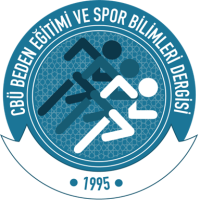
CBU Journal of Physical Education and Sports Sciences (BESBD), which started publishing in 1995; It is the publication organ of Manisa Celal Bayar University Faculty of Sports Sciences. It is a peer-reviewed journal where research articles, case reports, original articles and compilations on the theoretical and applied fields of Sports Sciences (Physical Education and Sports Teaching, Sports Management, Psycho-Social Areas in Sports, Movement and Training Sciences, Athlete Health and Recreation) are published.
Address:
Manisa Celal Bayar Üniversitesi, Spor Bilimleri Fakültesi, Halil Erdoğan Cd. Ahmet Bedevi Mah. 45040 Şehzadeler, Manisa/TÜRKİYE
Phone: +90 236 231 30 02 / +90 236 231 46 45
Fax: +90 236 231 30 01
Scientific Publication Coordinator

Editor-in-Chief
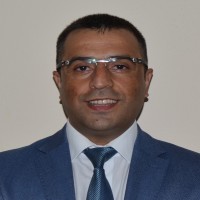
Editors

Kadir Yıldız did his bachelor’s degree in Sport Management at Cumhuriyet University. He completed master’s degree at Erciyes University and PhD in Sport Management at Abant Izzet Baysal University. Currently, he is an Assoc. Prof. at Manisa Celal Bayar University, and has studies on outdoor and adventure education, mountaineering, orienteering, outdoor sports, statistical modelling, communication in sports, fitness industry, service quality.
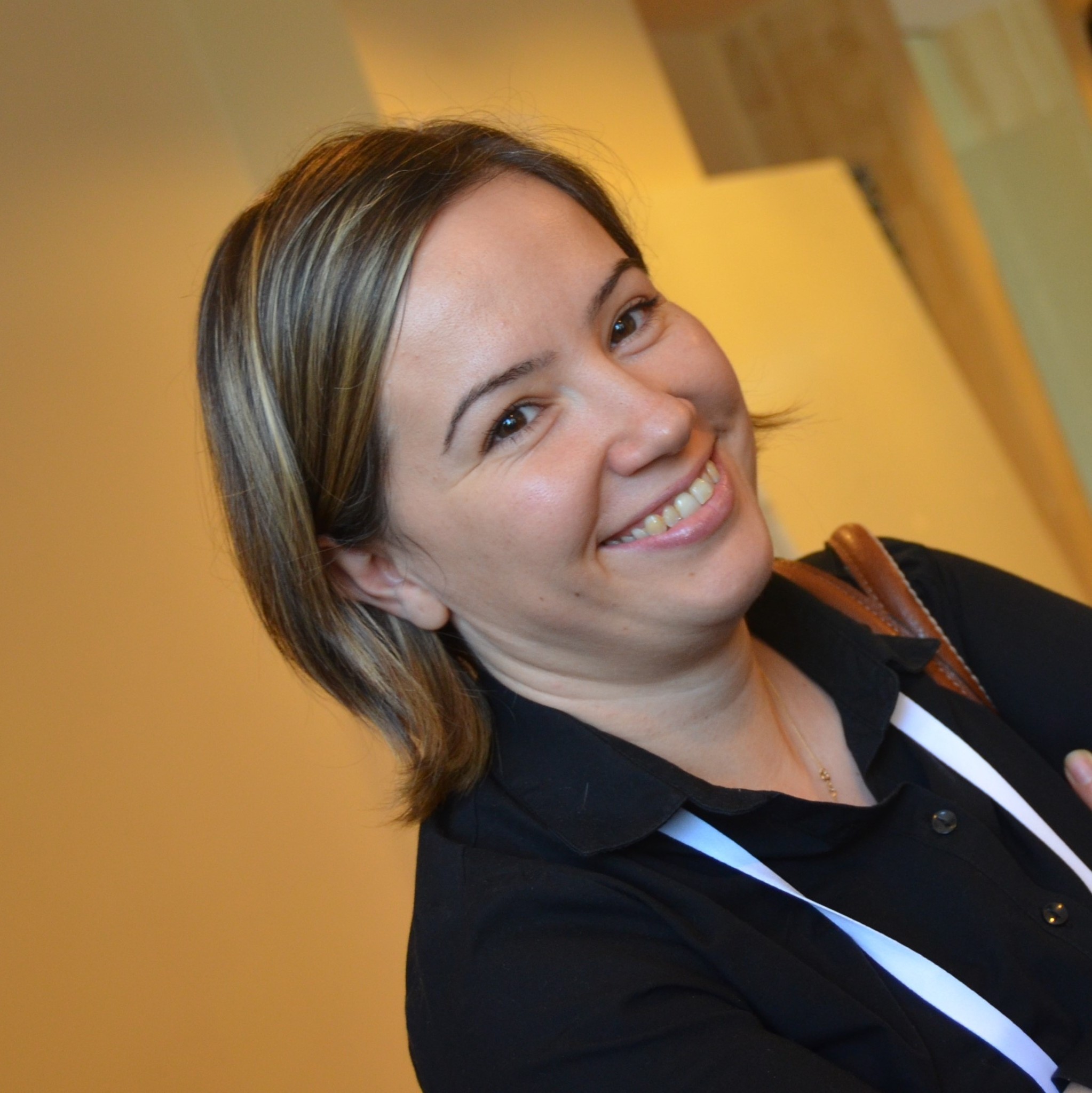
Publishing Coordinator & Proof-Reader

Journal Secretary

Publishing Board
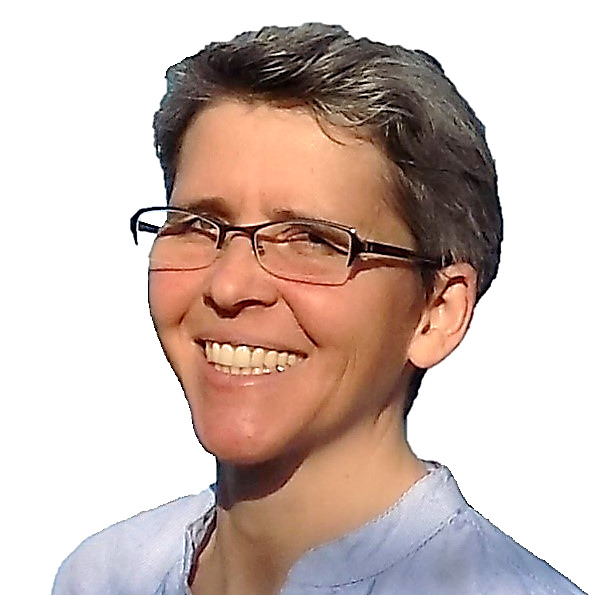

Dr. García-Fernandez conducts research in the field of Sport Management; fitness management, private sport businesses and consumer behavior.

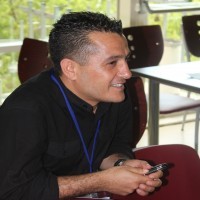
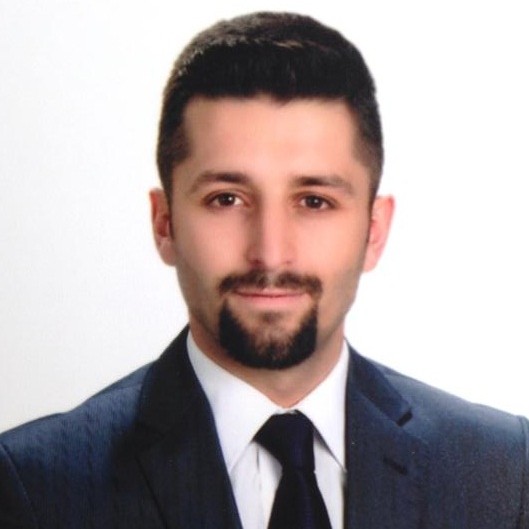
Dr. Munusturlar conducts research on Recreation science and program development in the basic field of Sport Sciences.
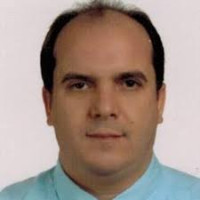
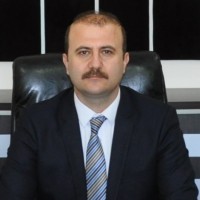

Scientific Committee










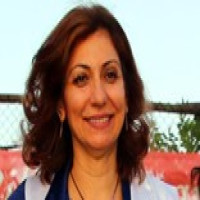
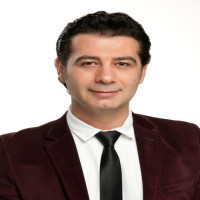






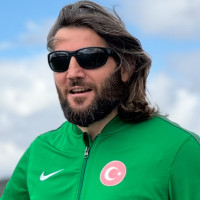
2020 - Prof. PhD. UMFST G. E. Palade Targu Mures
2023 Prof. PhD. Transilvania University of Brasov


Dr. Munusturlar conducts research on Recreation science and program development in the basic field of Sport Sciences.
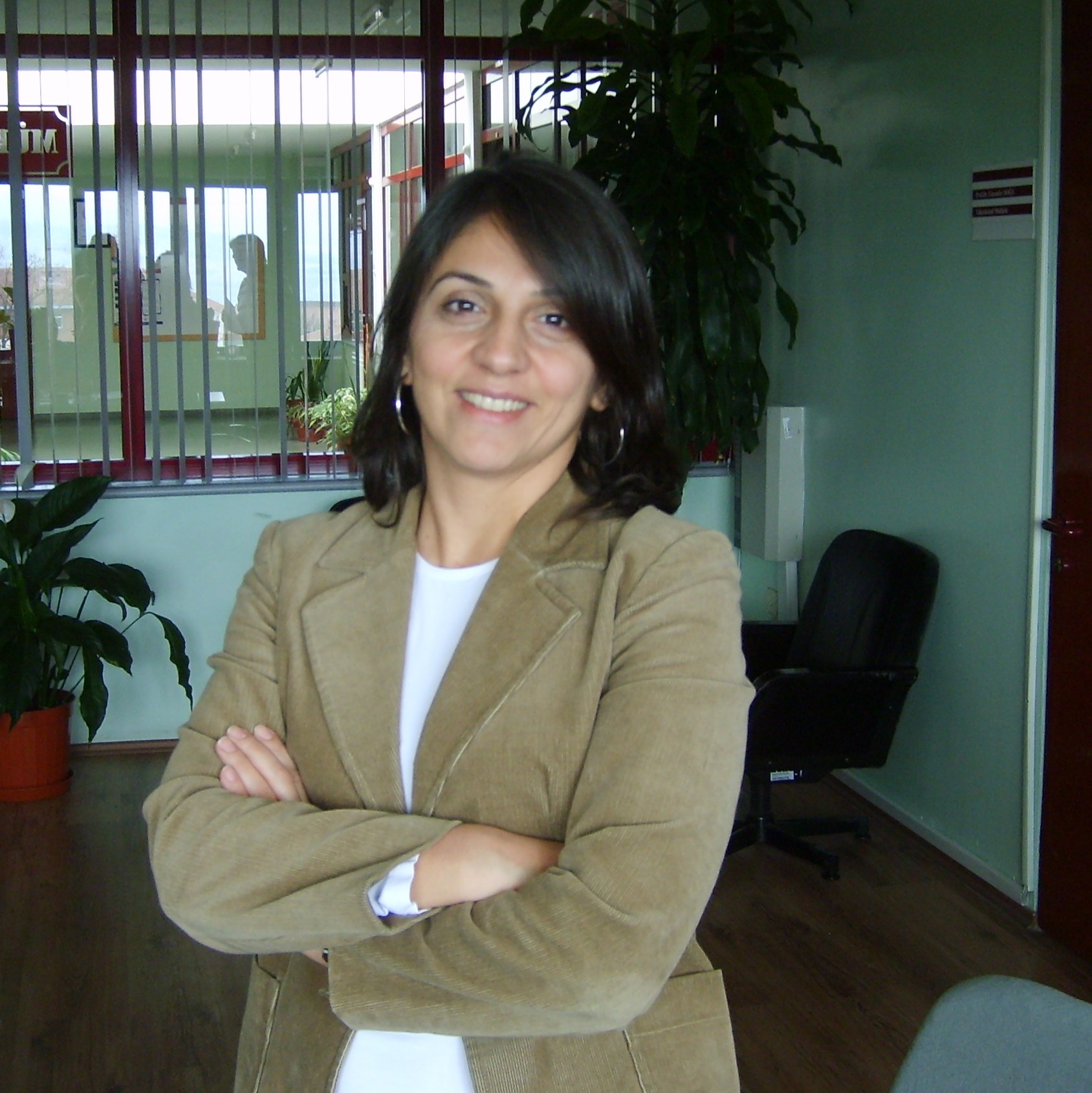
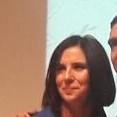


Dr. García-Fernandez conducts research in the field of Sport Management; fitness management, private sport businesses and consumer behavior.
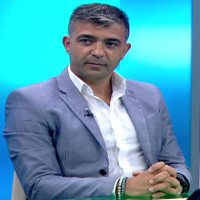

Full professor, University of Rome Foro Italico
Rector delegate for Disability and inclusion
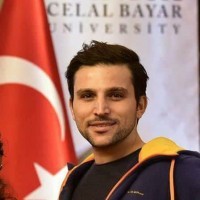

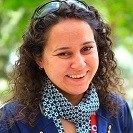

Manisa Celal Bayar Üniversitesi Spor Bilimleri fakültesi Sporda Psiko-Sosyal Alanlar A.B.D. Öğretim Üyesi
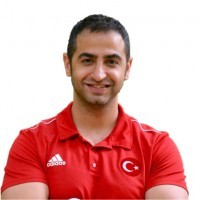
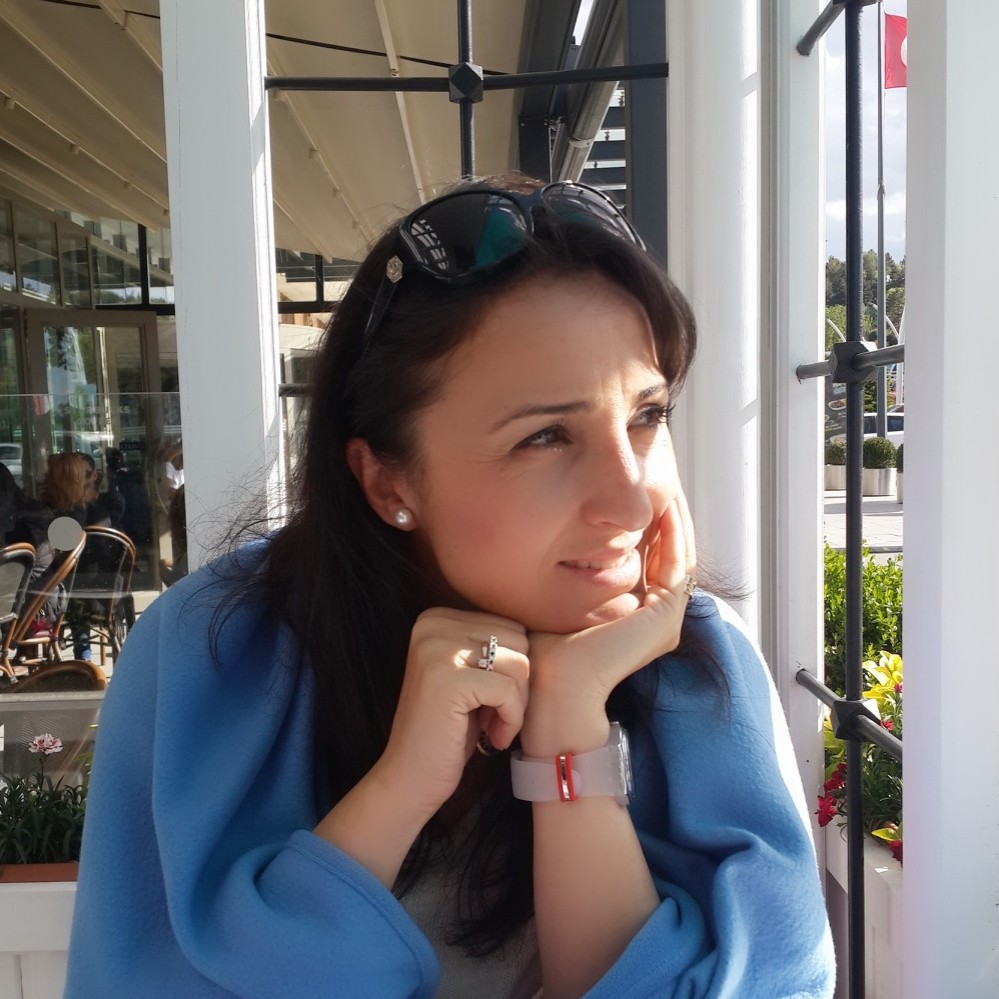
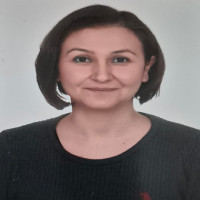

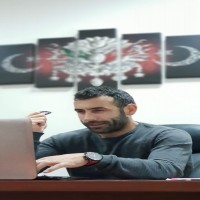

Kadir Yıldız did his bachelor’s degree in Sport Management at Cumhuriyet University. He completed master’s degree at Erciyes University and PhD in Sport Management at Abant Izzet Baysal University. Currently, he is an Assoc. Prof. at Manisa Celal Bayar University, and has studies on outdoor and adventure education, mountaineering, orienteering, outdoor sports, statistical modelling, communication in sports, fitness industry, service quality.






I am an associate professor at Usak University with over 14 years of experience in sport science. I have a PhD in Movement and Training Sciences from Gazi University and have taught courses on various subjects such as training science, sports nutrition, chemistry of sports, fitness, and sports injuries. I have numerous publications in the areas training science, sport performance, physical fitness, and sports injuries, and I collaborate with other researchers to advance sport knowledge and practices.
Professional Experience
Former cross-country skier
2010- 5th World Youth Congress (Regional Coordinator)
2011- 25th Winter Universiade (Delegate of University Sports Federation of Türkiye (TUSF))
2011- 26th Summer Universiade (Delegate of University Sports Federation of Türkiye (TUSF))
2012- International Universities Cross Country Championship (OrganisationCommitte)
2013- 1st Economic Cooperation Organization University Sports Games, (Organisation Committe)
2013- 27th Summer Universiade (Delegate of University Sports Federation of Türkiye (TUSF))
2014-2016 Federatıon Of Internatıonal Ski (S.C. for CC Rules And Control Member)
2014- European Universities Cross-Country Championships Organisation Committe)
2015-2016 Turkish Athletic Federation (Executive Board Member)
2020- Turkish Ski Federation (Membership - Education Commission)
2021-present Turkish Ski Federation (Membership - Education and Science Commission)
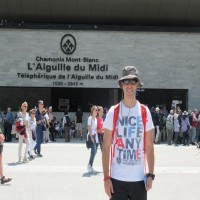
 Web
Web
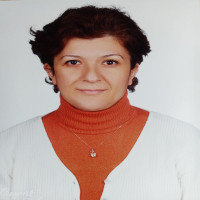

Spor yönetimi alanında eğitim alan Ercan POLAT lisans ve yüksek lisans eğitimini Gazi Üniversitesinde, doktora eğitimini ise Bolu Abant İzzet Baysal Üniversitesinde tamamlamıştır. Günümüzde Yozgat Bozok Üniversitesi Spor Bilimleri Fakültesi Spor Yöneticiliği bölümünde Profesör kadrosunda görev yapmaktadır. Çalışmaları spor seyircisi, fitness sektörü, rekreatif spora katılım, hizmet kalitesi gibi psiko-sosyal konularda yoğunlaşmaktadır.
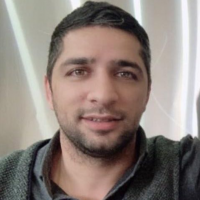

Dr. Müge Akyıldız Munusturlar completed her undergraduate studies in the Department of Recreation at Anadolu University, and her master’s and doctoral degrees in the Department of Sports Management and Recreation at the same institution. She subsequently completed her postdoctoral studies as a TÜBİTAK scholar at California State University, Chico (USA), where she continued her research on leisure and recreation.
She is currently a faculty member in the Department of Recreation at Eskişehir Technical University. Her research interests include leisure activity tendencies, therapeutic recreation, and serious leisure. She has conducted and published numerous national and international scientific studies in these fields.
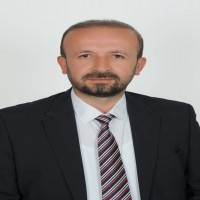



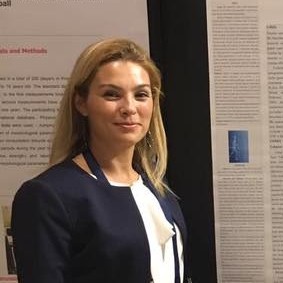
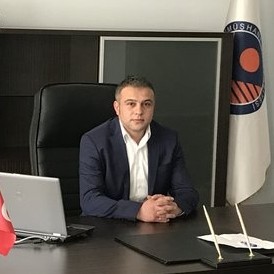

Naci Kalkan was born on June 10, 1989, in Elazığ, Maden. He completed his primary, secondary, and high school education in İzmir. Between 2007-2012, he pursued his undergraduate studies in Physical Education and Sports Teaching and Sports Management at Ege University's Faculty of Sports Sciences. In 2012, he began working as a research assistant at Manisa Celal Bayar University's Faculty of Sport Sciences, Department of Psycho-Social Studies in Sports. He completed his graduate studies between 2013-2016 and earned his doctorate in Physical Education and Sports in March 2020.
Kalkan was introduced to fencing at the age of 9 and has won numerous Turkish Championships in various age categories, representing the Turkish National Fencing Team multiple times. Since 2022, he has been working with the title of Associate Professor at Manisa Celal Bayar University.

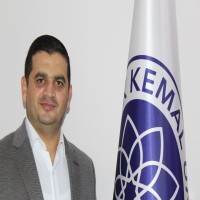

 Web
Web


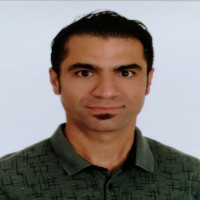
My main research interest is multiple-choice items and test development. I focus on the influence of item writing techniques on item validity and reliability. I am also interested in the study of supplementary education. I explore causes and outcomes of private tutoring by using nationally representative data in Turkey, drawn from Program for International Student Assessment (PISA) made available by OECD. I specialize in advanced quantitative methods and large datasets.





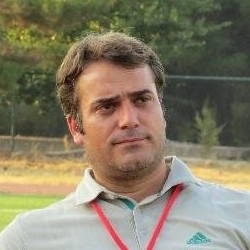
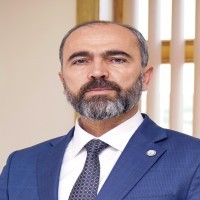


Dr. Özçakır conducts research on Physical Education and Sports and sports history.
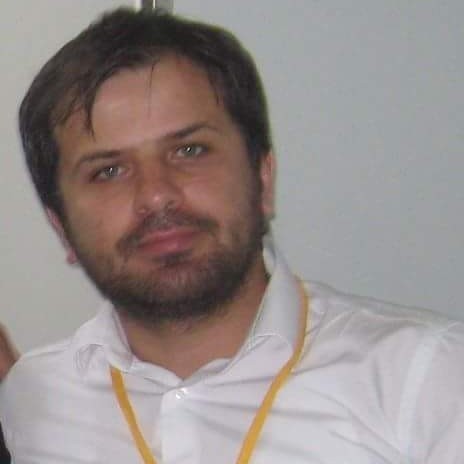
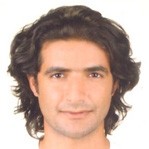

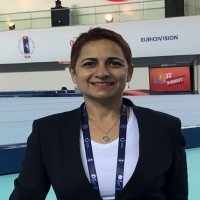
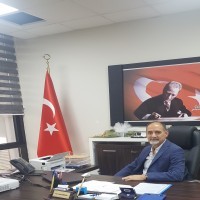
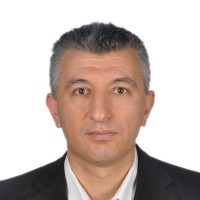

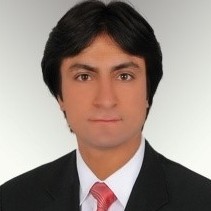
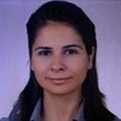

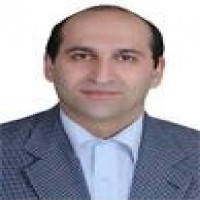
I am from Iran.
